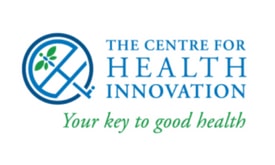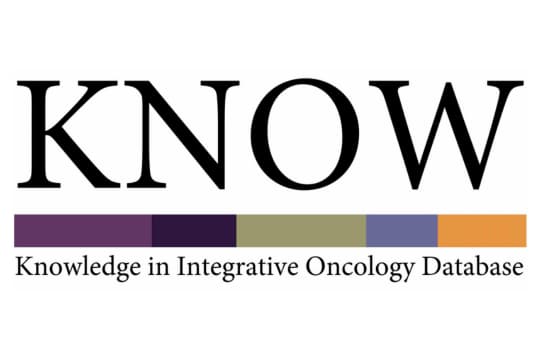Green tea and its extracts may provide substantial benefit for body terrain factors, especially body weight, high blood sugar and insulin resistance, inflammation, oxidative stress, each of which is linked to cancer development and growth.
Are you a health professional?
This section does not replicate the other information on this topic but provides additional details or context most relevant to professionals.
Modes of action
“In addition to the inhibition of clonal expansion of cancer stem cells and the modulation of tumour progression by maintaining a quiescent state in cancer cells, green tea (EGCG) can modulate multiple cell signalling pathways implicated in angiogenesis, metastasis and invasion, such as the inhibition of matrix metalloproteinases (MMPs) and the inhibition of vascular endothelial growth factor (VEGF). EGCG has also been reported to inhibit activator protein 1 and MAPKs, cyclo-oxygenase-2 overexpression, proteasome activity, nitric oxide synthesis, HER-2/neu signalling, insulin-like growth factor-1 (IGF-1)-mediated signalling and nuclear factor-ĸB (NF-ĸB) signalling pathways. EGCG has been found to suppress the binding of epidermal growth factor (EGF) to its receptor, leading to the inhibition of EGF-mediated signal transduction pathways.”1Mokbel K, Mokbel K. Chemoprevention of breast cancer with vitamins and micronutrients: a concise review. In Vivo. 2019 Jul-Aug;33(4):983-997.
EGCG affects breast cancer cells by “restoring estrogen receptor gene expression, modulating epigenetic changes and events, and interfering with tumor growth rate.”2Gianfredi V, Vannini S et al. Sulforaphane and epigallocatechin gallate restore estrogen receptor expression by modulating epigenetic events in the breast cancer cell line MDA-MB-231: a systematic review and meta-analysis. Journal of Nutrigenetics and Nutrigenomics. 2017;10(3-4):126-135.
“This article reviews the cancer preventive activities and mechanisms of action of tea catechins involving their redox activities, biochemical properties and binding to key enzymes or signal transduction proteins.”3Liu C, Li P et al. Advances in the antagonism of epigallocatechin-3-gallate in the treatment of digestive tract tumors. Molecules. 2019 May 3;24(9). pii: E1726.
Green tea catechins exert anticancer and chemopreventive effects by inhibiting the activation of specific RTKs, especially EGFR, IGF-1R, and VEGFR2.4Shimizu M, Adachi S, Masuda M, Kozawa O, Moriwaki H. Cancer chemoprevention with green tea catechins by targeting receptor tyrosine kinases. Molecular Nutrition & Food Research. 2011 Jun;55(6):832-43.
Improving treatment compliance
Some studies have found low levels of treatment compliance among people asked to drink several cups of green tea per day.5Dash C, Chung FL et al. A six-month crossover chemoprevention clinical trial of tea in smokers and non-smokers: methodological issues in a feasibility study. BMC Complementary and Alternative Medicine. 2012 Jul 16;12:96. Supplements may improve compliance for some individuals.
Preclinical evidence
Preclinical evidence is presented here; clinical evidence is summarized in How can green tea or EGCT help you? What the research says ›
Improving treatment outcomes
A 2017 review of preclinical studies found the weak inhibitory activity of EGCG increased synergistically in combination with anticancer drugs.6Fujiki H, Sueoka E, Rawangkan A, Suganuma M. Human cancer stem cells are a target for cancer prevention using (-)-epigallocatechin gallate. Journal of Cancer Research and Clinical Oncology. 2017 Sep 23.
Brain cancer
A 2018 review found that EGCG enhances the effectiveness of several treatments with glioma:7Le CT, Leenders WPJ, Molenaar RJ, van Noorden CJF. Effects of the green tea polyphenol epigallocatechin-3-gallate on glioma: a critical evaluation of the literature. Nutrition and Cancer. 2018 Apr;70(3):317-333.
- Irradiation
- Some chemotherapy drugs: temozolomide, carmustine, cisplatin
- Other cancer treatments: tamoxifen and TNF-related apoptosis-inducing ligand
Breast cancer
EGCG limits growth, proliferation and adhesion and induced cell death (apoptosis) of breast cancer cells.8Lewis KA, Jordan HR, Tollefsbol TO. Effects of SAHA and EGCG on growth potentiation of triple-negative breast cancer cells. Cancers (Basel). 2018 Dec 27;11(1). pii: E23; Avtanski D, Poretsky L. Phyto-polyphenols as potential inhibitors of breast cancer metastasis. Molecular Medicine. 2018 Jun 5;24(1):29.
Green tea catechins interact synergistically with tamoxifen or raloxifene, enhancing their use in treating estrogen receptor-positive and estrogen receptor-negative breast cancer, without interacting with aromatase inhibitors or fulvestrant in preclinical studies.9Yiannakopoulou EC. Interaction of green tea catechins with breast cancer endocrine treatment: a systematic review. Pharmacology. 2014;94(5-6):245-8.
Colorectal cancer
EGCG promoted cell death (apoptosis) and cell growth cycle arrest in human colon cancer cells.10Cerezo-Guisado MI, Zur R et al. Implication of Akt, ERK1/2 and alternative p38MAPK signalling pathways in human colon cancer cell apoptosis induced by green tea EGCG. Food and Chemical Toxicology. 2015 Oct;84:125-32.
Green tea polyphenols have anticancer effects on colon cells.11Hu G, Zhang L, Rong Y, Ni X, Sun Y. Downstream carcinogenesis signaling pathways by green tea polyphenols: a translational perspective of chemoprevention and treatment for cancers. Current Drug Metabolism. 2014 Jan;15(1):14-22; Ying L, Yan F et al. (-)-Epigallocatechin-3-gallate and EZH2 inhibitor GSK343 have similar inhibitory effects and mechanisms of action on colorectal cancer cells. Clinical and Experimental Pharmacology & Physiology. 2018 Jan;45(1):58-67; Ullah MF, Bhat SH et al. Pharmacological intervention through dietary nutraceuticals in gastrointestinal neoplasia. Critical Reviews in Food Science and Nutrition. 2016 Jul 3;56(9):1501-18.
Ovarian cancer
EGCG enhanced sensitivity of ovarian cancer cells to cisplatin.12Wang X, Jiang P et al. EGCG enhances cisplatin sensitivity by regulating expression of the copper and cisplatin influx transporter CTR1 in ovary cancer. PLoS One. 2015 Apr 30;10(4):e0125402.
Optimizing body terrain
Bleeding and coagulation imbalance
One polysaccharide in green tea has shown anticoagulation effects in cell studies.13Cai W, Xie L, Chen Y, Zhang H. Purification, characterization and anticoagulant activity of the polysaccharides from green tea. Carbohydrate Polymers. 2013 Feb 15;92(2):1086-90.
Helpful links for professionals

Centre for Health Innovation: Professional Resource: Green
Tea ›

KNOW Oncology › Subscription required
Keep reading about green tea or EGCG
Learn more
Health professional comment
We invite health professionals to contribute expertise or send us questions.
"*" indicates required fields
References
